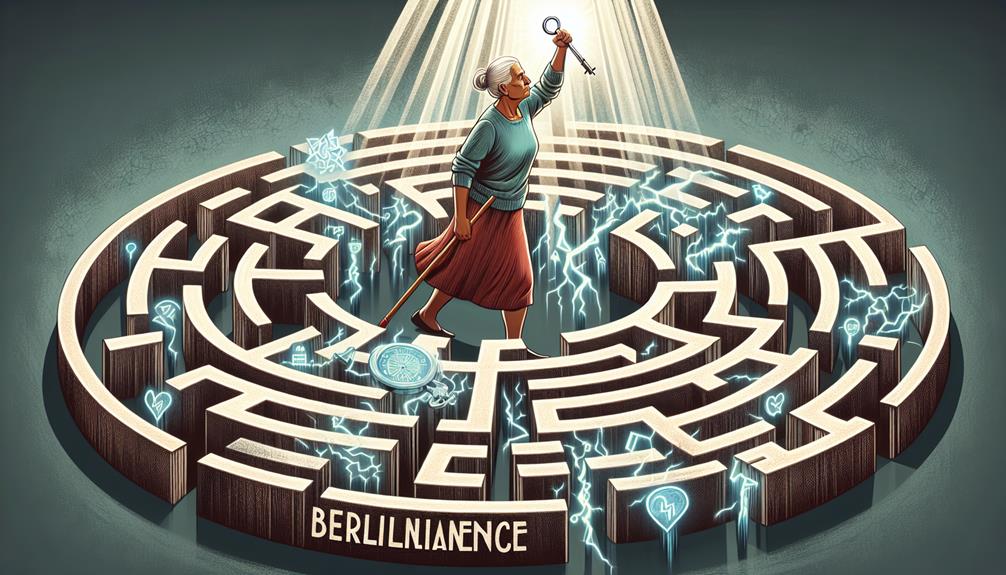The Later Years: Exploring the Unique Challenges Faced by Older Trans People


Table of Contents
ToggleWhen it comes to age and identity, change is constant, yet for older transgender individuals, the journey poses unique challenges. The complexities they face, from managing societal attitudes to grappling with personal changes, paint a compelling picture.
As these individuals manage the intricate landscape of later-life changes, they encounter a tapestry of obstacles that require delicate handling.
The resilience and wisdom they bring to their journey are palpable, shaping a narrative that demands attention and understanding.
Social stigma and discrimination persist as formidable barriers for older transgender individuals, shaping their lived experiences and access to various societal resources. Workplace discrimination remains a prevalent issue, with many older transgender individuals facing challenges such as job insecurity and unequal treatment based on their gender identity. Despite legal protections in place, discrimination in the workplace continues to hinder their professional growth and overall well-being.
Additionally, community acceptance plays an important role in the lives of older transgender individuals. Social isolation can arise from a lack of understanding and inclusivity within their communities, leading to feelings of loneliness and exclusion. Advocacy efforts are essential in combating these issues, raising awareness, and promoting a more inclusive environment for older transgender individuals.
Accessing healthcare services is an essential aspect of ensuring the well-being and quality of life for older transgender individuals. Healthcare disparities often hinder older transgender people from receiving the care they need. Age-related challenges, such as chronic conditions and hormone therapy management, require specialized services that may not always be readily available.
Support networks play a critical role in steering these healthcare disparities. Having a community that understands and advocates for inclusive services can greatly impact the well-being of older transgender individuals. Advocacy efforts are important to push for policies that promote equal access to healthcare for all, regardless of gender identity.
Inclusive services that cater to the unique needs of older transgender individuals are essential. Creating safe spaces where individuals feel respected and understood can help alleviate the barriers faced when seeking healthcare services. By addressing these challenges and working towards more inclusive healthcare practices, the overall health and quality of life for older transgender individuals can be greatly improved.
Family and relationship dynamics play an important role in the lives of older transgender individuals, influencing their sense of support and understanding within their personal networks. Communication barriers can often arise within families, hindering open dialogue about gender identity and leading to misunderstandings. Establishing strong support networks becomes essential for older transgender individuals to navigate acceptance struggles and find a sense of belonging. Relationship dynamics within families may evolve as individuals disclose their true identities, impacting the overall family structure.
| Family and Relationship Dynamics |
|---|
| Communication barriers |
| Support networks |
| Relationship dynamics |
| Acceptance struggles |
| Identity disclosure |
Creating a safe space for identity disclosure is essential in fostering understanding and acceptance within family dynamics. Older transgender individuals may face challenges in expressing their true selves due to fear of rejection or lack of awareness among family members. Building a supportive environment that encourages open communication and embraces diverse identities can have a significant impact on the well-being of older transgender individuals.
Handling financial implications and challenges can be an intimidating task for older transgender individuals as they consider various aspects of their financial well-being and security. Retirement planning becomes essential as they navigate through potential employment discrimination and economic barriers. Many face housing insecurity, which adds to the stress of guaranteeing a stable living situation. The wealth disparities experienced by older transgender people can further complicate their financial stability, making it important to seek out tailored financial advice and support systems.
Despite progress in LGBTQ+ rights, challenges persist in accessing employment opportunities without facing discrimination based on gender identity. This discrimination can significantly impact financial stability and retirement planning. Older transgender individuals may also encounter economic barriers that hinder their ability to save for retirement or secure stable housing, leading to increased vulnerability. Addressing these financial challenges requires a combination of policy changes, community support, and individual financial planning to guarantee the well-being of older transgender individuals.
Managing mental health struggles can be an intricate journey for older transgender individuals, highlighting the essential need for tailored support systems and understanding. Exploring these challenges can be overwhelming, but there are resources available to assist in promoting mental well-being:
Accessing community resources, fostering mental health awareness, and actively engaging in support systems are pivotal steps towards enhancing emotional resilience and well-being for older transgender individuals. Remember, reaching out for help is a sign of strength, and there’s support available to assist in this journey towards mental wellness.
Transitioning later in life deeply impacts an individual’s sense of identity and self-expression. This journey involves self-acceptance, exploring one’s identity, and seeking emotional support.
Coping strategies play an essential role in maneuvering this process. The quest for self-acceptance and authentic expression shapes how individuals perceive themselves, fostering a deeper understanding of their true identity.
Emotional support and coping mechanisms are critical in embracing this transformation.
Societal acceptance plays a pivotal role in older transgender individuals’ decisions to change. Family dynamics, workplace acceptance, mental health, medical expenses, and community support heavily influence their journey. Acceptance from society can provide a sense of belonging and validation, making the changing process more manageable.
Supportive environments foster self-acceptance and empowerment, allowing individuals to navigate their identity with confidence and authenticity.
Cultural norms and traditions can have a big impact on older transgender individuals as they navigate their change journey. Family dynamics and community support play important roles in shaping their experiences.
Legal barriers and medical concerns may hinder progress, while cultural acceptance and identity affirmation are essential for mental health.
Social isolation can be a challenge, but personal growth can come from overcoming these obstacles. Embracing gender expression and seeking inclusive environments can foster a positive change journey.
When facing emotional challenges and isolation during their transformation, older transgender individuals can benefit from various strategies. Seeking out support systems, prioritizing mental health, fostering community connections, practicing self-care, and engaging in gender-affirming therapy can all contribute to their well-being.
Embracing these approaches can provide comfort, understanding, and empowerment throughout their transformation journey. It’s essential for older transgender individuals to prioritize their emotional health and seek the resources that best support their needs.
In traversing the complex web of challenges faced by older transgender individuals, the intersectionality of identities like race, ethnicity, and disability greatly influences their transformation process. Mental health struggles, support networks, healthcare access, legal rights, and family dynamics all play integral roles in shaping their journey.
Understanding and addressing these multifaceted issues with empathy and support are essential in fostering a safe and inclusive environment for older transgender individuals.
To sum up, older transgender individuals face a multitude of challenges in their journey towards self-acceptance and authenticity. Despite societal anachronisms, they deserve respect, understanding, and support.
By addressing issues such as social stigma, healthcare access, family dynamics, financial struggles, and mental health, we can create a more inclusive and compassionate environment for all.
It’s imperative to recognize the unique experiences of older transgender people and work towards building a more accepting and affirming society for them.
Originally posted 2024-03-06 15:53:42.
 Featured PostsFebruary 2, 2026The Weight Lifted: Navigating Your FTM Top Surgery Recovery
Featured PostsFebruary 2, 2026The Weight Lifted: Navigating Your FTM Top Surgery Recovery News and AdvocacyJanuary 30, 2026Threat Assessment: 47 Organizations Launch National Initiative Against LGBTQ+ Marital Equality
News and AdvocacyJanuary 30, 2026Threat Assessment: 47 Organizations Launch National Initiative Against LGBTQ+ Marital Equality Featured PostsJanuary 30, 2026Voice in Female-To-Male Transgender Persons After Long-Term Androgen Therapy
Featured PostsJanuary 30, 2026Voice in Female-To-Male Transgender Persons After Long-Term Androgen Therapy Featured PostsJanuary 30, 2026My Wife Doesn’t Know I’m Trans
Featured PostsJanuary 30, 2026My Wife Doesn’t Know I’m Trans